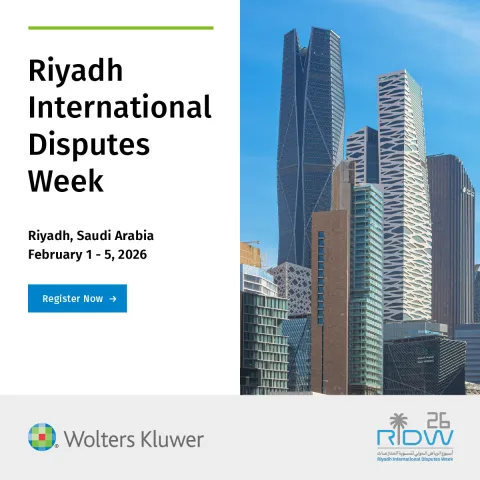Arbitration’s USP at Stake? Supreme Court Settles the Debate Over Judicial Modification of Awards in India
July 25, 2025
The long-standing debate in India on the scope of judicial intervention under Section 34 of the Arbitration and Conciliation Act, 1996 (“Act”), specifically, whether the courts can modify awards, or are confined to merely setting them aside – has been reignited. Behind this renewed scrutiny is the recent decision pronounced by the Indian Supreme Court in the case of Gayatri Balasamy v. ISG Novasoft Technologies Limited, which appears to open the door for courts to alter awards.
This post, following a previous post on this landmark judgment, examines whether the Indian legal framework, explicitly or implicitly, permits modification of awards. It reviews key statutory provisions, judicial trends and compares India’s approach with arbitration-friendly jurisdictions like Singapore, the United Kingdom, and Australia. The authors contend that definitive legislative clarity is imperative to uphold India’s credibility as an arbitration-friendly jurisdiction.
Statutory Silence and Judicial Responses to Modification
The current legal framework, as is, does not expressly allow modification of awards in India. The Act only provides for limited interventions, such as the correction of any clerical or typographical errors in the award before the arbitral tribunal under Section 33. In addition, setting aside of an award by the courts is permissible under Section 34 on grounds of public policy, void arbitration agreements, incapacity of parties, non-arbitrable subject matter of the dispute, and incompetence of the arbitral tribunal, amongst others.
Historically, Indian courts have adopted an approach of limited judicial intervention and upheld awards unless vitiated by serious grounds such as fraud, patent illegality, or violation of public policy. This principle was firmly established in early jurisprudence, most notably in the landmark case of McDermott International Inc. v. Burn Standard Co. Ltd., where the Indian Supreme Court reinforced a narrow, supervisory role for courts restricted only to reviewing the awards in cases of fraud, bias, patent illegality, or violation of principles of natural justice.
However, there have been exceptions to this narrow approach. In several instances, the Indian Supreme Court and High Courts such as the Delhi High Court, have modified parts of an award – specifically with regards to the calculation of the applicable interest rate on the basis of equity and reasonableness.
A notable clarification of legislative intent in this regard came in the case of Nussli Switzerland Ltd. v. Organizing Committee, Commonwealth Games 2010. The Delhi High Court emphasised that as opposed to the earlier Arbitration Act, 1940, which contained a specific provision on the modification of an award in Section 15, the omission of an equivalent provision in the Act is evidence that the legislature did not want to continue any remedy for the courts to modify awards. This was also later affirmed by the Indian Supreme Court, reinforcing that the current framework does not support judicial modification of awards.
Traditionally, Section 34 of the Act has been understood to limit courts to setting aside awards. However, following a reference made to the Indian Supreme Court in Gayatri Balasamy, it has now been reinterpreted to allow limited modification in specific circumstances. These include: (i) where severability of the award is possible; (ii) to correct any clerical, computational or typographical errors; and (iii) to modify post award interest in certain circumstances.
This reinterpretation witnesses the Indian Supreme Court going a step further by invoking its powers under Article 142 of the Indian Constitution to modify an award. The Indian Supreme Court justified this intervention on the grounds that it was necessary to “do complete justice” between the parties. Article 142 of the Constitution empowers the Indian Supreme Court to pass any order necessary to ensure complete justice in a case, even if such relief is not explicitly provided under the statutory framework of the Act.
However, this decision was not unanimous. In a well-reasoned dissent, Justice K.V. Viswanathan cautioned against diluting the finality and autonomy of the arbitral process. He raised particular concerns over the use of Article 142 of the Indian Constitution to modify the interest rate in the award, warning that such intervention risks undermining the principle of minimal judicial intervention. At the same time, in agreement with the majority view, Justice Viswanathan acknowledged the necessity of correcting clerical, computational or typographical errors in awards. He emphasised that such corrections are permissible under the principle of actus curiae neminem gravabit – meaning the act of the court shall prejudice no one, ensuring that no parties suffer due to procedural errors.
This divergence between the intervention of the Indian Supreme Court and the black letter of the law, calls into question India’s commitment to minimal judicial intervention, which continues to be a benchmark in global arbitration practice.
Legitimising Judicial Interventionism
Favourable jurisdictions for arbitration have a common feature – minimal judicial intervention. For instance, the Singapore Court of Appeal has consistently held that the substantive merits of the arbitral proceedings lie beyond the courts’ purview. This doctrine has been reaffirmed in multiple decisions, including those from 2015 and 2022. India, too, has historically aligned with this view. In Associate Builders v. Delhi Development Authority, the Indian Supreme Court held that judicial intervention is warranted only when the arbitral tribunal’s interpretation is so perverse that no fair-minded or reasonable person could have arrived at the same conclusion.
However, recent jurisprudence suggests a shift from this settled position. In particular, the ruling in Gayatri Balasamy appears to dilute the doctrine of minimal judicial interventionism by allowing the Indian Supreme Court to modify awards virtually without any guardrails or principles guiding the exercise of such discretionary power. This development reflects a broader judicial trend, as discussed in a previous post, wherein courts have increasingly granted concessions to the losing side by modifying the reliefs awarded by the arbitral tribunal for compensation, interest, or legal costs.
This drift away from statutory limits has seen courts invoking extraneous grounds such as the proportionality and reasonableness (as invoked in Vedanta Ltd. v. Shenzhen Shandong Nuclear Power Construction Co. Ltd.), equity (M/s. Oriental Structural Engineers Pvt. Ltd. v. State of Kerala), fairness (Oil and Natural Gas Corporation Ltd. v. Dolphin Drilling Ltd.), and the need to avoid delay (M/s Skoda Auto Volkswagen India Private Limited v. M/s Commercial Auto Products Private Limited) to justify modification of awards. Notably, in Tata Hydro-Electric Power Supply Co. Ltd. & Ors. v. Union of India, the Indian Supreme Court modified the interest component of the award without providing any reasoning or examining the scope of Section 34. A similar approach was often taken by the Bombay and Delhi High Courts, amongst others, evincing lack of accountability and exercise of unbridled discretion. These decisions reflect a trend of subjective and inconsistent reliance on “reasonableness” to achieve equitable outcomes, despite the settled legal position that justice and equity cannot override contractual certainty – the cornerstone of arbitration.
The ruling in Gayatri Balasamy deepens these concerns by introducing a structural interpretative shift. The Indian Supreme Court relied on the Latin maxim – omne majus continet in se minus (“the greater contains the lesser”) to justify that if courts have the wider power to set aside an arbitral award under Sections 33 and 34 of the Act, they also have the narrower, implied power to modify or correct the award. The Indian Supreme Court concluded that the power to set aside an award necessarily includes the power to partially set it aside or modify it. However, in his dissent, Justice Vishwanathan correctly distinguished between the two highlighting that while setting aside ensures judicial oversight, the power to modify is inherently appellate in nature. These powers are fundamentally distinct, and the power to modify cannot be implied within the power to set aside.
This disconnect becomes even more apparent when compared to arbitration regimes of other jurisdictions. While arbitration legislations in countries like United Kingdom, Singapore, and Australia, inter alia, explicitly empower courts to “vary” awards under defined statutory provisions, Indian law does not make similar provisions. Despite this, the Indian Supreme Court in Gayatri Balasamy sought to rely on Article 142 of the Indian Constitution to confer upon itself the discretion to modify awards, as previously discussed. This is not only problematic as it runs counter to key principles of the Act — namely, minimal judicial intervention, finality of awards, and party autonomy, but also has the potential to open the floodgates of litigation, undermining arbitration’s purpose as a time-bound and conclusive dispute resolution mechanism.
As a general rule, the extra-ordinary power conferred on the Indian Supreme Court under Article 142 of the Indian Constitution must not be exercised in a manner that contravenes the fundamental and non-derogable principles at the core of any statute. This was reaffirmed by the Indian Supreme Court itself in the case of Shilpa Sailesh v. Varun Sreenivasan. Any expansive judicial interpretation that seeks to include modification power infringes upon the non-obstante clause under Section 5 of the Act, which stipulates that judicial intervention is permitted only as explicitly provided under Part I of the Act in domestic and India-seated arbitrations.
These concerns highlight the need for a balanced solution that can address judicial overreach while preserving the integrity of arbitration.
The Path Forward
The power of judicial modification can ensure necessary judicial oversight, reduce procedural delays, and boost arbitration in India. However, such significant change ought to be introduced through a rigorous and consultative legislative process rather than resorting to judicial innovation. The Indian Supreme Court erroneously justified its transgression into legislature’s mandate to allow the courts to alter awards as a means to yield more just outcomes in arbitration.
The courts must not recast or rewrite a law even if such purposive interpretation seems beneficial for the arbitration landscape of the country. The ruling in Gayatri Balasamy has expanded the role of the court in arbitration process from judicial oversight to that of an appellate authority and therefore unchecked discretionary use of power by the courts.
The power to modify awards serves a fundamentally different purpose from setting them aside and requires a distinct legal framework. Without clear boundaries, such power is susceptible to misuse, potentially transforming the courts into appellate forums rather than limited enforcement mechanisms. In Gayatri Balasamy, the Indian Supreme Court appears to have missed an opportunity to establish distinct and limited grounds for use of such power. To safeguard the integrity of the arbitral process and prevent protracted litigation, the legislature should intervene to clarify the scope of judicial modification and set out well-defined grounds for its application.
The Indian Supreme Court’s decision in Gayatri Balasamy has increased uncertainty in the arbitration landscape by expanding the scope of judicial intervention. This could consequently undermine stakeholder confidence in the Indian arbitration framework, which has long relied on finality and limited court interference as its core strengths. The Indian government has already begun drifting away from arbitration in domestic procurement contracts due to concerns such as lack of finality, erroneous decisions, high costs and delays. It is imperative that the judiciary and legislature work together to curb unwarranted judicial intervention and ensure that arbitration does not lose its time and cost-effectiveness i.e., features distinguishing it from litigation.
You may also like











